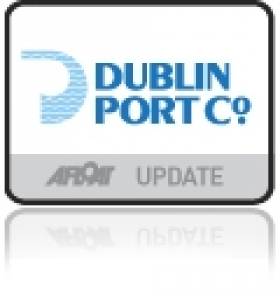Displaying items by tag: Gibson Hotel
Irish Ports Association Conference Heads for Dublin
#IRISHportsConference - As previously reported the 2013 Irish Ports Association (IPA) Conference on 27 September in Dublin is to be hosted by Dublin Port Company.
The annual event precedes the UK's British Ports Association which takes place next month.
This year, the IPA conference is to be held in the Gibson Hotel, Dublin which is close to The O2 Arena located within the 'Docklands' quarter that borders the port estate.
The conference will see the launching of the new National Ports Policy. In addition the conclusion by the Irish Competition Authority of a review of the ports sector and the publication by the EU Commission of a proposed ports Regulation. All of these create challenges for Irish ports whose efficiency and capacity is crucial to support international trade in goods.
Core themes of the IPA conference are ports policy, practice and planning. An elite panel of national and international speakers will not only examine recent policy developments but also to present examples from around the world (UK, Denmark, Greece and Chile) as to how ports elsewhere have adapted and responded to changing regulatory environments.
For further information on the conference, programme and bookings visit: ipadublin2013.com
Dublin Hosts Maritime Law Seminar Next Month
The latest Maritime Law Seminar hosted by the Irish Maritme Law Association (IMLA) will take place on Thursday 12 May 2011 in The Gibson Hotel at The Point Village in Dublin's Docklands.
Also open to non-members, the day will feature discussions on the areas of ship arrests, sale of goods, marine casualties and maritime jurisdiction.
The seminar fee is €100 for IMLA members (€130 for non-members) and bookings mist be made with payment by Tuesday 10 May.
A booking form with further details is available from the IMLA website.































































